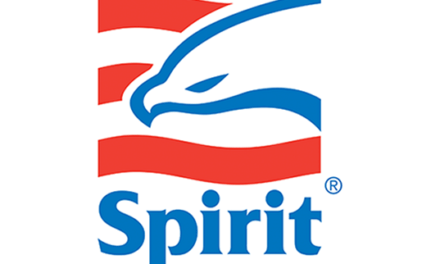The U.S. Environmental Protection Agency (EPA) has released its proposed rulemaking to allow the sale of E15 year-round, as well as its reform proposals to the Renewable Identification Number (RIN) credit market. The feedback has been mixed. Several of the ethanol ethanol associations are already on record as being pleased with the development, while the associations representing the retail fuels industry have issues with the RIN changes.
As Growth Energy noted, the proposed rule would lift a nearly thirty-year-old limitation on E15, which restricts sales between June 1 and September 15, and marks the first step in the rulemaking process. The EPA has committed to completing the rulemaking process by June 1, 2019, the start of the summer driving season. Before finalizing the rule, the agency will now accept comments from biofuel producers, farmers, and numerous other stakeholders.
The American Coalition for Ethanol (ACE) CEO Brian Jennings issued the following statement:
“We’re pleased EPA has finally publicized its proposal to allow retailers to offer E15 to their customers year-round. With just 80 days to go until the start of the 2019 summer driving season, we will urge stakeholders to provide public comment to EPA, so a legally-defensible rule can be in place by June 1. Time is of the essence, particularly since EPA insists on saddling the E15 rulemaking with controversial RIN reforms that will need to be carefully reviewed to ensure they don’t undermine ethanol demand.
“Without a final rule in place by June 1, this year would mark the eighth time, since EPA originally approved a waiver for E15, that fuel marketers in many parts of the country have had to prohibit their customers from purchasing a lower-cost, higher-quality fuel option at the pump during the busy summer driving months.
“E15 has lower evaporative emissions than E10 and straight gasoline and has been approved by EPA for use in 2001 and newer vehicles, 90 percent of the cars on the road today. Access to E15 all year will increase the fuel’s availability, reduce refiner RIN costs, and open much-needed market access for surplus corn.
“As pleased as we are with this important step in the process, the upside potential of E15 year-round will be blunted unless and until EPA returns sanity to the way it handles Small Refinery Exemptions under the Renewable Fuel Standard (RFS). EPA needs to restore the 2.25 billion gallons of biofuel blending obligations waived for large, profitable refineries.”
Growth Energy CEO Emily Skor issued the following statement:
“This rule is a critical milestone for rural Americans who make renewable biofuels and for all American drivers, who may soon have a cleaner, more affordable, higher-octane fuel all year long. We are still reviewing details of the proposal, and we look forward to working with the EPA to ensure that any changes – particularly in the RIN market – do not upend the marketplace and continue to encourage investment in E15 and other higher ethanol blends. We appreciate the administration’s efforts to fulfill the president’s promise and will continue in our commitment to making the environmental and economic benefits of E15 available to consumers nationwide.”
New: Renewable Fuels Association (RFA) President and CEO Geoff Cooper offered the following statement:
“Today’s proposed rule means EPA is one step closer to making good on President Trump’s promise to allow year-round sales of E15. With just 80 days left before the start of the summer driving season, finalizing and implementing the E15 regulatory fix remains a tall order. That is why we have urged EPA to separate the year-round E15 provisions from the RIN reform provisions, and move forward as quickly as possible to finalize a practical and defensible year-round E15 solution. With ethanol plants shutting down or idling and farmers experiencing the worst conditions in more than a decade, removing the summertime ban on E15 once and for all would send a desperately needed signal to the marketplace.
“We are carefully reviewing the details of the proposed rule and look forward to providing EPA with extensive technical and legal comments to support an expeditious and legally sound resolution of this decades-old red tape barrier. RFA and its member companies will also testify in support of year-round E15 at the upcoming public hearing.”
Fuel marketers and retailers issued the following response:
NATSO, the national association representing truckstops and travel plazas, the National Association of Convenience Stores (NACS) and the Society of Independent Gasoline Marketers of America (SIGMA) criticized the Environmental Protection Agency’s (EPA) proposed regulations that would reform the market for Renewable Identification Numbers (RINs).
“EPA’s proposal would remove many existing incentives to sell biofuels and would act as a penalty for fuel marketers that want to blend those fuels,” said NATSO Vice President of Government Affairs David Fialkov. “The ‘reforms’ that EPA is exploring were conceived by the same refining companies that for years have been trying to undercut the RFS in order to avoid investing in renewable fuels. The changes are not designed to ‘enhance RIN transparency’ but rather to depress demand for biofuels so that a small subset of refiners can spend as little as possible to meet their obligations.”
“While these reforms are supposed to limit volatility and ‘improve transparency’ in the RIN market, they would generate more problems than solutions,” said Paige Anderson, NACS director of government relations. “Allowing E15 to be sold year round is only helpful if retailers still have an incentive to sell it—and this proposal takes that incentive away.”
“If enacted as proposed, the ‘reforms’ could disrupt and distort the RIN market, ultimately undermining the purpose of the RFS,” said Eva Rigamonti, counsel to SIGMA. “Rather than push this counterproductive proposal, EPA could mitigate RIN market volatility while incentivizing the blending and sale of more renewable fuels by implementing the RFS in a transparent and predictable fashion.”


![EPA Begins Year-Round E15 Rulemaking with Mixed Support [updated]](https://149516224.v2.pressablecdn.com/wp-content/uploads/2013/08/ethanol-plant-cornfield-537X350.jpg)






